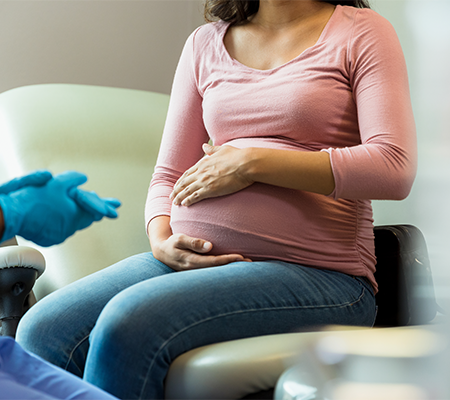Trisomy 13, also known as Patau syndrome, is a rare chromosomal condition with intellectual and physical disabilities.

Trisomy 13 is a rare chromosomal condition with intellectual and physical disabilities. It’s important families feel supported by their health care team.
“All of our genetic information is packaged up in chromosomes to tell the body how to develop and grow,” said Emily Toering, genetic counselor at Marshfield Clinic Health System. “Typically, we have two copies of each chromosome, but individuals with Trisomy 13 have an extra copy of the 13th chromosome.”
Because of potential medical problems, many infants die within the first days of life. According to National Institute of Health (NIH), only five to 10% of children with this condition will live past their first year.
However, Toering says this chromosomal condition can have a spectrum of severity, and these children will need medical support through their life span. Due to the severity and rarity of Trisomy 13, it’s important for families to receive support during pregnancy and after childbirth.
“Ensuring that there’s a good care team in place to treat and help baby where they need help, is so important,” she said.
Signs of Trisomy 13
Trisomy 13 is often diagnosed in pregnancy or early infancy. Having an extra chromosome can cause physical differences, such as cleft lip and palate, smaller or missing eyes, extra fingers or toes, kidney and bladder formation concerns and scalp differences. Additionally, an individual can have a severe intellectual disability.
How to diagnose?
Ultrasounds or prenatal blood screenings may detect some of the birth defects that warrant further genetic testing for Trisomy 13.
There are two procedures that can diagnose Trisomy 13 during pregnancy. Amniocentesis is used to diagnose chromosomal abnormalities, and can be used to identify fetal infections. In this procedure, a small amount of amniotic fluid is sampled from the amniotic sac surrounding the baby. Chorionic villus sampling (CVS) also can be used to diagnose chromosomal disorders, which samples chorionic villi from the placenta.
These procedures can be done after a positive prenatal screening or ultrasound detects something abnormal. Toering explained that it is important to know what condition is being tested with a small sample. If not detected during pregnancy, once the baby is born, genetic testing can confirm a diagnosis.
Trisomy 13 occurs in one of every 5,000 births. However, this number may be inaccurate due to the number of miscarriages that go undiagnosed.
What is the cause?
Trisomy 13 happens by chance. During conception of a baby, sometimes an extra chromosome slips through during the process. This error can happen sporadically and can occur more frequently as eggs within the body age.
“It’s nothing that a parent did wrong,” Toering said. “It’s just something that can happen.”
In rare occasions, Trisomy 13 can be inherited because of how the chromosomes bundle. Genetic counselors can review the parent’s chromosomes to determine if the condition was inherited, but the possibility is low.
“Typically, we would say there is a 1% occurrence risk,” Toering said. “However, we know the risk increases with the pregnant parent’s age. As the eggs get older, there may be errors in those eggs that can be associated with this chromosomal condition along with others.”
Resources and support available
Support Organization for Trisomy (SOFT) is a website for families with children who have Trisomy 18, 13 and related disorders. The site has support groups, events and other resources to help parents get in touch with medical teams or other families in their area.
“Because this condition is so severe, medical care can be hard to find and I recommend this organization to help,” Toering said. “Along with that, Facebook groups are a great way to connect with others. It can be really isolating, especially when it’s a rare condition. We are always here for support and information.”
To learn more about medical genetics services with Marshfield Clinic Health System, visit our website.

